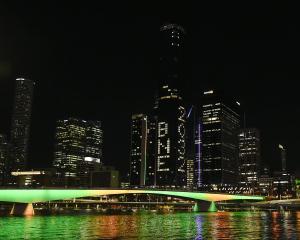
The $A9.7 billion ($NZ10 billion) pricetag for Port of Melbourne fell short of the country's largest privatisation deal on record, the $A10.8 billion sale of electricity grid company Transgrid to a global consortium in November last year, but still ranks among its biggest.
It also smashes the target set by the government of Victoria state which previously said it hoped for $A5.8 billion for the container and multi-cargo port. In 2013, the two ports of larger city Sydney fetched $A5 billion.
"Equity markets are starting to realise that they're going to live in an environment where returns are going to be lower for longer, and they're looking for secure investments," Victoria Treasurer Tim Pallas said.
Australian leaders will also hope the deal shows they still welcome Chinese infrastructure buyouts. The 2015 sale of smaller Port of Darwin to Chinese interests set off a political backlash which culminated in the federal government blocking a state-owned Chinese bidder from buying the Ausgrid energy network last month, over national security concerns.
Australia began a free trade agreement with China in December last year, but has been trying to ease diplomatic strains with the mainland since the Ausgrid rejection. China's commerce ministry warned at the time that the move "seriously impacts the willingness of Chinese companies to invest in Australia".
On Monday, Pallas said Australia's sovereign wealth fund, The Future Fund, and Canada's Ontario Municipal Employees Retirement System will each get a fifth of Port of Melbourne following the sale, which is packaged as a 50-year lease.
The government investment vehicle of Queensland state (QIC) and New York-based Global Infrastructure Partners are the other consortium partners.
QIC's investors include California Public Employees' Retirement System while investors in Global Infrastructure Partners include China Investment Corp, and South Korean pension fund NPS.
All foreign buyers have regulatory clearance, Pallas said.
The sell-off is part of Australia's more than $A100 billion privatisation programme, where state and federal governments are trying to cut debt and bankroll capital works by selling "mature" infrastructure assets.
New South Wales state, which arranged the troubled Ausgrid sale, is again trying to offload that asset, and plans to dispose of another grid afterwards. Western Australia state meanwhile wants to sell ports, while the federal government is selling the Australian Security and Investments Commission's registry arm.












